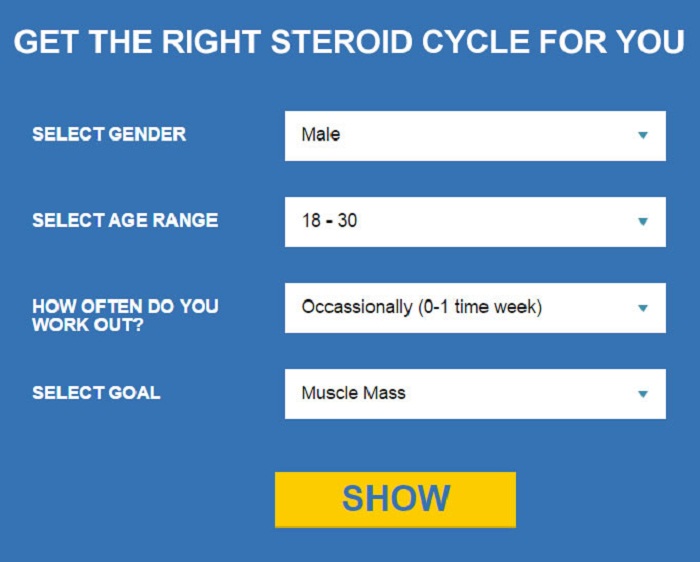Tren Jaw
Contents
In recent years, there has been a growing concern about a condition known as “tren jaw.” This condition has gained attention due to its potential impact on individuals who use anabolic steroids, particularly trenbolone, a popular performance-enhancing drug. In this comprehensive article, we will delve into the world of tren jaw, exploring its definition, causes, symptoms, potential treatments, prevention strategies, and the broader implications of its relationship with anabolic steroids.
Also Check: Unveiling the Tren Twins | Diet, Workout Routine, and Steroid Usage
What is Tren Jaw?
Tren jaw, medically known as “Temporomandibular Joint Disorder” or “TMD,” is a condition that affects the temporomandibular joint (TMJ) and the muscles surrounding it. The TMJ is the hinge that connects your jaw to the temporal bones of your skull. When this joint is disrupted or damaged, it can lead to a range of symptoms collectively known as TMD or “tren jaw.”
Causes of Tren Jaw
Tren jaw is often associated with the use of anabolic steroids, particularly trenbolone. The exact mechanism by which steroids like trenbolone lead to TMD is not entirely understood, but there are several potential factors:
Muscle Growth: Anabolic steroids can lead to rapid muscle growth, including the muscles of the jaw and face. This increased muscle mass may put extra stress on the TMJ.
Clenching and Grinding: Steroid use can sometimes lead to teeth clenching and grinding, which can contribute to TMJ issues.
Hormonal Changes: Steroids can disrupt the balance of hormones in the body, which may also affect the TMJ.
Mood Swings: Steroid use can cause mood swings, which might lead to increased stress and tension, exacerbating TMD.
Water Retention: Some steroids cause water retention, which could lead to facial swelling, potentially affecting the TMJ.
Symptoms of Tren Jaw
Tren jaw can manifest in a variety of ways, and the severity of symptoms can vary from person to person. Common symptoms of TMD include:
Jaw Pain: Individuals with Tren Jaw often experience pain or discomfort in the jaw area, which can be constant or intermittent.
Jaw Clicking or Popping: Clicking or popping noises in the jaw joint are common symptoms of TMD.
Limited Jaw Movement: TMD can restrict the range of motion of the jaw, making it difficult to open the mouth fully.
Headaches: Frequent headaches, often originating around the temples, can be a sign of Tren Jaw.
Ear Pain: TMD can also cause ear pain, as the TMJ is located close to the ear canal.
Facial Pain: Discomfort in the face, especially around the cheeks, is a common symptom.
Lockjaw: In severe cases, TMD can cause lockjaw, where the jaw temporarily gets stuck in an open or closed position.
Diagnosis of Tren Jaw
If you suspect you have Tren Jaw or experience any of the symptoms mentioned above, it is essential to seek medical evaluation. A healthcare provider, often a dentist or oral surgeon, can diagnose TMD through a physical examination of the jaw joint and a review of your medical history. They may also order imaging tests like X-rays or MRIs to assess the condition of the TMJ.
Conservative Treatments
In many cases, Tren Jaw can be managed with conservative treatments, which may include:
Lifestyle Changes: Simple lifestyle modifications like eating soft foods, avoiding extreme jaw movements, and reducing stress can alleviate symptoms.
Physical Therapy: Jaw exercises and physical therapy can help improve jaw mobility and reduce pain.
Medications: Non-steroidal anti-inflammatory drugs (NSAIDs), muscle relaxants, and pain relievers can be prescribed to manage pain and inflammation.
Dental Treatments: Dental interventions, such as the use of dental splints or orthodontic devices, can help alleviate TMD symptoms.
Steroid Cessation
If tren jaw is associated with the use of anabolic steroids, discontinuing their use is often necessary to prevent further progression of the condition. It is crucial to consult a healthcare professional before making any changes to medication regimens. Steroid cessation should be done under medical supervision, as abruptly stopping steroid use can have its own set of health implications.
Invasive Treatments
In some severe cases, where conservative treatments have not yielded positive results, more invasive interventions may be considered:
Injections: Corticosteroid injections into the TMJ can reduce inflammation and alleviate pain.
Arthrocentesis: A procedure where fluid is irrigated through the joint to remove debris and inflammatory byproducts.
Surgery: In rare instances, surgical intervention, such as arthroscopy or open joint surgery, may be required to repair or replace the TMJ. These procedures are usually considered after other treatment options have been exhausted.
Prevention
Preventing Tren Jaw primarily involves avoiding anabolic steroid use. However, if you engage in strength training and are concerned about TMD, consider the following preventative measures:
Warm-Up and Stretching: Always warm up before strength training and include jaw and neck stretches in your routine to reduce tension.
Balanced Diet: Maintain a balanced diet to support muscle growth without the need for steroids. Proper nutrition is crucial for overall health and well-being.
Stress Management: Find healthy ways to manage stress through relaxation techniques, yoga, or meditation. Chronic stress can exacerbate TMD symptoms.
Regular Dental Check-ups: Regular visits to the dentist can help identify TMD in its early stages, and your dentist can provide guidance on oral health and TMJ care.
Professional Guidance: If you are using or considering anabolic steroids for any reason, it is essential to consult with a healthcare professional. They can provide information about the potential risks and side effects of these substances and help you make informed decisions about your health.
The Broader Implications of Anabolic Steroid Use
Beyond the specific connection to Tren Jaw, it’s important to acknowledge the broader implications of anabolic steroid use. Anabolic steroids are synthetic versions of the hormone testosterone, and they are often used to enhance muscle growth, athletic performance, and physical appearance. However, their use is associated with various risks and adverse effects, including:
Hormonal Imbalance: Anabolic steroids can disrupt the body’s natural hormonal balance, leading to a range of issues, including infertility, changes in secondary sexual characteristics, and mood swings.
Cardiovascular Risks: Steroid use can increase the risk of heart problems, including high blood pressure and an enlarged heart.
Liver and Kidney Damage: Prolonged use of steroids can harm the liver and kidneys.
Psychological Effects: Steroids can lead to aggressive behavior, mood disorders, and dependency.
Legal Consequences: In many countries, the use and possession of anabolic steroids without a prescription is illegal.
Health Risks: Steroid use can contribute to a variety of health problems, including acne, baldness, and the development of breast tissue in men (gynecomastia).
It is crucial for individuals to be aware of these potential risks and consider alternative methods for achieving their fitness and performance goals that do not involve anabolic steroids. Consulting with medical professionals, personal trainers, and nutritionists can help individuals pursue safe and sustainable approaches to physical fitness and well-being.
FAQs
What is Tren Jaw?
Tren Jaw, also known as Temporomandibular Joint Disorder (TMD), is a condition that affects the jaw joint and surrounding muscles, leading to symptoms such as pain, clicking, and limited jaw movement.
What causes Tren Jaw?
Tren Jaw is often associated with the use of anabolic steroids, like trenbolone. The exact mechanism is not fully understood, but factors may include muscle growth, clenching and grinding, hormonal changes, and stress.
Can Tren Jaw occur without steroid use?
Yes, Tren Jaw can occur in individuals who have never used steroids. Other factors such as stress, teeth grinding, or genetics can contribute to TMD.
What are the common symptoms of Tren Jaw?
Typical symptoms include jaw pain, clicking or popping sounds in the jaw joint, limited jaw movement, headaches, ear pain, facial pain, and, in severe cases, lockjaw.
How is Tren Jaw diagnosed?
Diagnosis usually involves a physical examination by a healthcare provider, often a dentist or oral surgeon. Imaging tests like X-rays and MRIs may also be used to assess the condition of the temporomandibular joint.
What are conservative treatments for Tren Jaw?
Conservative treatments include lifestyle changes (soft diet, stress reduction), physical therapy, medications (pain relievers, muscle relaxants), and dental interventions (splints or orthodontic devices).
Is stopping steroid use the only treatment for Tren Jaw related to steroids?
Stopping steroid use is a crucial step in managing Tren Jaw related to steroids, but it may not be the only treatment. Depending on the severity of symptoms, additional interventions like injections, arthrocentesis, or surgery may be required.
Can Tren Jaw be prevented?
Preventing Tren Jaw involves avoiding anabolic steroid use and adopting a healthy lifestyle. Strategies include warm-up and stretching, a balanced diet, stress management, and regular dental check-ups.
What are the broader implications of anabolic steroid use?
Anabolic steroid use can have various health risks, including hormonal imbalance, cardiovascular problems, liver and kidney damage, psychological effects, and legal consequences.
What should individuals do if they suspect they have Tren Jaw?
If someone suspects they have Tren Jaw or is experiencing related symptoms, it’s essential to consult a healthcare professional for an accurate diagnosis and guidance on treatment options. Early intervention can help manage the condition effectively.
Conclusion
Tren jaw, or TMD, is a complex condition with multiple potential causes and symptoms. Although it has been associated with anabolic steroid use, it can also occur in individuals who have never used these substances. If you suspect you have Tren Jaw or are concerned about TMD, consult a healthcare professional for an accurate diagnosis and treatment plan.
The most crucial step in managing and preventing Tren Jaw is to address the underlying causes, which may include discontinuing steroid use and adopting a healthy lifestyle. By taking these steps, you can reduce the risk of TMD and protect the health of your temporomandibular joint. Remember, your health should always be a top priority, and seeking professional guidance is essential in managing any medical condition.
Furthermore, it’s important to recognize the broader implications of anabolic steroid use and make informed decisions about your health and fitness goals. Prioritizing long-term health and well-being over short-term gains is always a wise choice.



